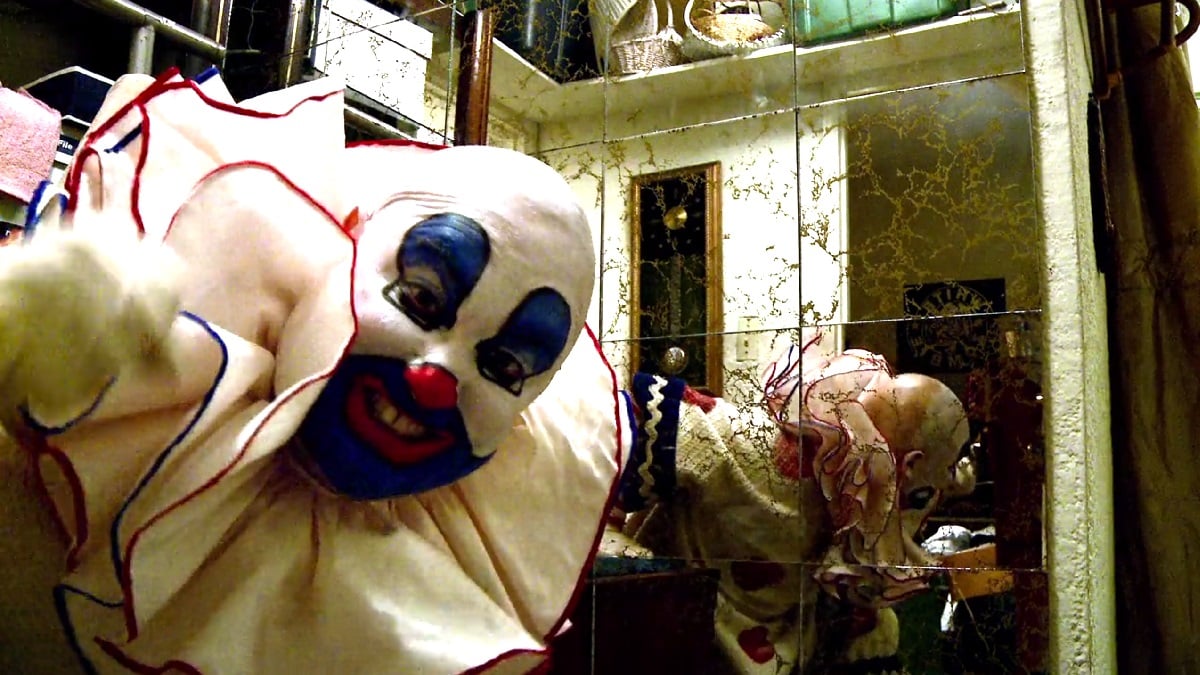Found footage horror has always tended to exist somewhere between a gimmick used to wring unearned jump-scares and frights from a paper-thin concept, a worthwhile method of putting a unique spin on a familiar narrative setup, or a cash-in designed to ride on the coattails of the most successful examples. Entirely dependent on who you ask, 2014’s Mockingbird is either one, two, or all three of the above.
Todd Stashwick’s regular family man Tom, Barak Hardley’s momma’s boy and moonlighting clown Leonard, and Alexandra Lydon’s lonely college student Beth each mysteriously have a camcorder delivered to their door with vague instructions that documenting their daily lives could lead to a cash prize hailing from a competition of some sorts.
However, things take a turn for the sinister when they receive further instructions, warning them that if they ever stop filming their lives will come to a swift and horrifying end. The three strangers gradually find their existences intertwined for better or worse, but who exactly is running the shady racket? How do they spot it? And will you even care?
The latter is the most loaded question of all, given that Mockingbird proved (and continues to prove) to be a divisive feature. A 4.1/10 audience average on IMDb, a 20 percent user rating on Rotten Tomatoes, and reviews that contain such wildly opposing soundbites as “annoying,” hugely underrated,” “waste of time,” “V/H/S meets The Game,” “not as bad as people say,” “pointless and lame,” and many more besides only underline the gamut-running opinions emanating from all corners.
What we can all agree on at last is that Mockingbird has become one of the most-watched films on Rakuten this week, with FlixPatrol providing the irrefutable evidence. Is it good or bad, though? The consensus is that it’s one or the other, with no in-between.
